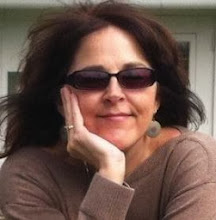When my father tries to set the house on fire, I’m sitting in the back seat of our rusty Chevrolet in my Catholic school uniform, a little plaid number in a cheerless black and green. It’s a warm, bright day—almost fall—and my mother’s in the front passenger seat with a flowery kerchief tied over her dark curls, the smoke from her Tarreyton snaking up out of the open car window. She twitches involuntarily a couple of times like she does when her nerves act up; but other than that, she’s quiet, her eyes trained on our house. Beside me in the back seat, my brother sits thumbing the tires of a Hot Wheels car.
Where’s Daddy? he whines. It’s getting hot in the car, and the burnt paper smell of my mother’s cigarette is giving me a headache.
He’s coming, my mother says.
And there he is: bolting down the pinched, cracked sidewalk that runs along the side of our house. He dashes like his pants are on fire, and I’m surprised when he jumps in the car and yanks the shift into drive that no flames follow him. We take off down the quiet street, tires screeching, just like something out of a Mannix episode—and my mother’s head jerks back from the jolt of our indiscrete getaway. Mrs. Askew, our next door neighbor, puts down her newspaper and stands up from her front porch glider to see what all the commotion’s about—while my brother and I squeal from the back seat.
But he is inept even at starting fires. The rags he soaked in gasoline never sparked at the back of the house, never caught, and that sorry-looking cottage with the holes in the linoleum is still there, still lilting to one side like someone with a bum leg, when we come back a few hours later. I’ll be a sonofabitch, my father says, punching the dash, as we inch around the corner onto our street. My mother heaves a sigh, but I can’t tell if it’s a sigh of relief or disappointment. Of course my brother and I had no idea that day that our father was trying to burn down the house. Because even then, even at the tender age of six, I would have understood how futile it was to burn down a rental. The goddamn fool that he was…
A year later he gives her a toaster for Mother’s Day. We only used it a few times before the thing ignited, and my mother tugged the hot cord out of the wall socket with a startled shriek. I stood in the kitchen, wringing my hands, certain that the blaze my father couldn’t start in the back of the house would consume us now—in the form of the Sunbeam Radiant Control toaster on our kitchen counter. She was relieved, happy even, when the cops came to confiscate the toaster after a bunch of donated items that were supposed to be raffled off at the radio station where my father worked came up missing. Here, she said, when the uniformed men knocked at the door. Take it. And while I didn’t like the idea of two men with guns at their hips standing sentinel-like in our kitchen, I was glad to see the toaster go. After the officers left, my mother wiped up the crumbs that had escaped the toaster and then lit a match to a Tarreyton with a trembling hand.
And it is many years later—a lifetime later—that I am on the sixth floor of Williams Street when the two planes hit. It’s another warm bright day, much like the day my father tossed his book of matches and ran. And I run, too, this day in September. But the similarities end there. He is dead a couple of years by now, the obituary landing in my inbox a few months after he was cremated. Two paragraphs, single column, summed up his second-rate life. He had no children, the obit said. And I have my first child kicking around a willing belly as I scramble over the Brooklyn Bridge, mouth agape, the taste of ash on my tongue. I do not want this child born into the world of fire, of burnt plastic and flesh; I feel the heat of fleeing souls behind me. And for months afterward I dream dreams of smoldering fires—under my desk, in the closet, under my son’s sheltered crib…
And he has seen everything lost to flames, has been awakened by fire to collect his family, like so many stones, to escape into a cold night. Just moments before the roof caved in… They watched the blaze from across the road, witnessed a history erased—and yet even that night, he said he could see beauty in the destruction... Which I cannot imagine, which I could not do. Because all that heat is a dangerous thing, a powerful thing—with a strength that is more than this faltering me, this clamoring me, with her memories of fire and flames.
***
Subscribe to:
Post Comments (Atom)

No comments:
Post a Comment